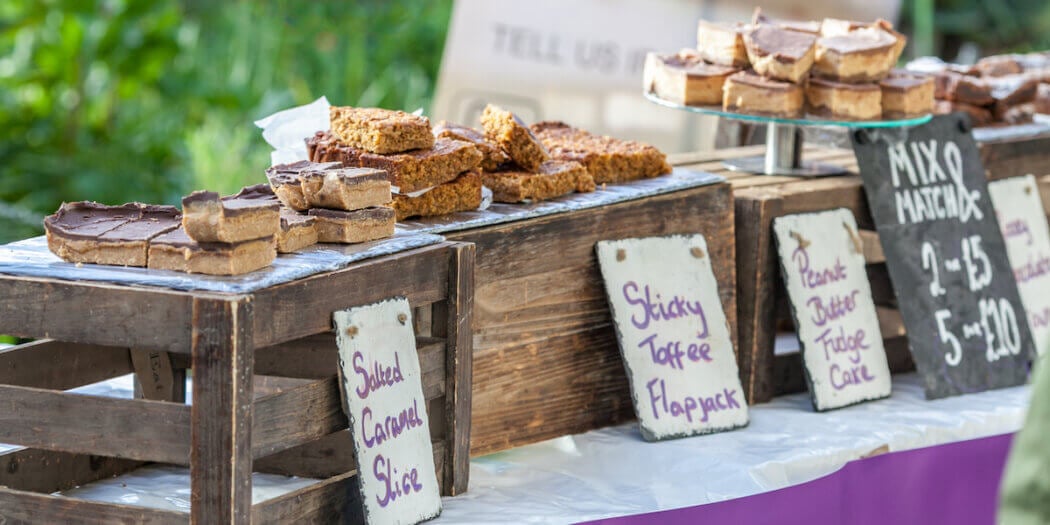Food fundraising ideas offer a unique and delicious way to raise funds for your cause. From classic bake sales to innovative culinary events, there are endless possibilities to engage your community and generate revenue.
This comprehensive guide will provide you with everything you need to plan and execute a successful food fundraising event. We’ll cover brainstorming creative ideas, planning the event, creating mouthwatering food and beverage offerings, and maximizing your fundraising efforts.
Brainstorming Food Fundraising Event Ideas

Food-centric fundraising events offer a delectable way to raise funds for worthy causes while tantalizing taste buds and fostering community spirit. Let’s explore an array of creative and unique food-themed fundraising ideas that cater to diverse target audiences.
From traditional culinary competitions to innovative gastronomic experiences, these ideas aim to engage attendees, generate revenue, and leave a lasting impression.
Culinary Competitions
- Bake-Off Bonanza:Host a friendly baking competition where participants showcase their culinary skills and compete for coveted titles like “Best Pie” or “Most Creative Cupcake.”
- Chili Cook-Off Extravaganza:Gather chili enthusiasts to compete for the ultimate bragging rights. Offer a range of categories, from traditional to adventurous flavors, and invite judges to determine the winners.
- Pizza Palooza:Engage local pizza makers in a lively competition where they showcase their signature creations. Allow attendees to sample and vote for their favorite pizzas.
Planning a Food-Themed Fundraising Event
Organizing a successful food fundraising event requires careful planning and coordination. Here are some key steps to consider:
Venue Selection
The venue should be appropriate for the size and nature of the event. Consider factors such as capacity, accessibility, and availability of necessary amenities like kitchen facilities and parking.
Menu Design
The menu should be appealing and varied, offering a range of options to cater to different tastes and dietary preferences. Consider the cost of ingredients, preparation time, and presentation when designing the menu.
Marketing Strategies
Promote the event effectively through various channels, including social media, email campaigns, and local media outlets. Highlight the cause the event supports and the unique culinary offerings to attract attendees.
Volunteer Coordination
Recruit and coordinate a team of volunteers to assist with tasks such as food preparation, serving, and cleanup. Provide clear instructions and training to ensure a smooth and efficient operation.
Creative Food and Beverage Offerings

Entice attendees with delectable culinary creations and tantalizing beverages that tantalize their taste buds and elevate the fundraising experience. Explore innovative and mouthwatering dishes, themed menus, and specialty drinks that cater to diverse palates and dietary preferences.
Signature Dishes
Create a buzz with signature dishes that are uniquely crafted and become the talk of the event. Consider local delicacies with a modern twist, gourmet street food, or dishes inspired by popular cuisines. Offer vegetarian, vegan, and gluten-free options to ensure inclusivity.
- Truffle-infused mac and cheese
- Deconstructed sushi bowls with exotic toppings
- Gourmet hot dogs with artisanal toppings
Themed Menus
Transport attendees to different culinary landscapes with themed menus. Create a Mediterranean night with grilled kebabs, hummus, and baklava. Host an Asian-inspired evening featuring dim sum, stir-fries, and exotic desserts. Offer a taste of Italy with a menu of homemade pasta, wood-fired pizzas, and tiramisu.
Specialty Drinks
Quench thirst and add a touch of indulgence with specialty drinks. Craft cocktails using seasonal fruits, artisanal spirits, and house-made syrups. Offer mocktails for non-alcoholic options. Create a signature fundraising drink with a portion of the proceeds going towards the cause.
- Lavender-infused lemonade
- Raspberry-mint mojitos
- Pumpkin spice lattes
Marketing and Promotion Strategies: Food Fundraising Ideas
To generate excitement and attract attendees to your food fundraising event, effective marketing and promotion strategies are crucial. A combination of online and offline tactics can help you reach a wider audience and increase the visibility of your event.
Online Marketing
- Social Media Campaigns:Create engaging content and use targeted advertising to promote your event on platforms like Facebook, Instagram, and Twitter. Use relevant hashtags and encourage attendees to share their excitement.
- Email Marketing:Build an email list and send out regular updates about the event, including details about the menu, special guests, and ticket sales. Segment your audience based on interests to tailor your messaging.
- Website and Landing Page:Create a dedicated website or landing page that provides all the necessary information about the event, including ticket prices, venue details, and a registration form.
Offline Marketing
- Community Outreach:Partner with local businesses, community organizations, and schools to promote your event. Offer incentives for referrals and encourage them to display posters or distribute flyers.
- Local Media:Reach out to local newspapers, radio stations, and TV channels to get coverage for your event. Provide them with a press release and offer to host a media preview.
- Flyers and Posters:Distribute flyers and posters in high-traffic areas, such as shopping malls, libraries, and community centers. Make sure they include eye-catching visuals and clear call-to-actions.
By implementing a comprehensive marketing and promotion strategy, you can effectively reach your target audience, generate excitement for your event, and increase ticket sales.
Fundraising Techniques
Maximizing revenue at food-themed fundraising events requires a strategic approach to fundraising techniques. From setting clear goals to leveraging online platforms, there are several effective methods to boost your fundraising efforts.
Setting realistic and achievable fundraising goals is crucial. Consider the event’s budget, target audience, and past fundraising performance. Communicate these goals clearly to attendees and donors to foster a sense of urgency and motivate support.
Incentivizing Donations
Offering incentives can encourage larger donations. Consider providing tiered rewards based on donation amounts, such as exclusive merchandise, VIP experiences, or personalized thank-you gifts. This approach creates a sense of value and recognition, increasing the likelihood of generous contributions.
Utilizing Online Donation Platforms
In today’s digital age, online donation platforms play a vital role in fundraising. Choose a reputable platform that offers secure payment processing, donor management tools, and customizable donation pages. Promote these platforms heavily to facilitate convenient and accessible donations.
Budgeting and Financial Management
Financial planning is crucial for the success of any food fundraising event. It involves determining the costs, setting a budget, and managing expenses effectively to maximize revenue.
Key Financial Considerations
- Event expenses:Venue rental, food and beverage costs, equipment rentals, staffing, and marketing.
- Revenue streams:Ticket sales, food and beverage sales, sponsorships, and donations.
- Profitability:The difference between revenue and expenses, which should be positive for a successful event.
Budgeting and Cost Control
Create a detailed budget outlining all expected expenses and revenue sources. Monitor expenses throughout the planning process to identify potential cost overruns. Consider negotiating with vendors for discounts or in-kind donations.
Maximizing Revenue
- Set ticket prices:Research similar events and determine a price that balances profitability with attendance goals.
- Offer tiered ticket options:Provide different levels of access or perks to increase revenue from high-value donors.
- Secure sponsorships:Partner with businesses or organizations that align with the event’s mission and offer sponsorship packages.
Collaboration and Partnerships

Collaborations and partnerships are crucial for the success of food fundraising events. By working with local businesses, community organizations, and sponsors, event organizers can leverage resources, expand their reach, and increase their fundraising potential.
Local Business Partnerships
Partnering with local businesses offers numerous benefits. Businesses can provide financial support, in-kind donations, or volunteer services. They can also promote the event through their channels, increasing awareness and attracting attendees. For example, a local grocery store could donate food items, while a restaurant could offer a percentage of sales from a designated night to the fundraiser.
Community Organization Partnerships
Collaborating with community organizations can help reach a wider audience and build stronger ties within the community. Organizations can assist with event planning, provide volunteers, or offer their facilities for the event. For instance, a local church could provide a venue for the fundraiser, while a youth group could help with setup and cleanup.
Sponsor Partnerships, Food fundraising ideas
Sponsorships can provide significant financial support for food fundraising events. Businesses or individuals can sponsor specific aspects of the event, such as food, entertainment, or marketing. In return, sponsors receive recognition and promotional opportunities. For example, a local bank could sponsor the main stage, while a beverage company could sponsor the drink station.
Impact and Evaluation
Evaluating the impact and effectiveness of food fundraising events is crucial for continuous improvement and accountability. By measuring the outcomes, organizers can identify strengths, weaknesses, and areas for improvement.
Metrics for Success
- Funds raised: The primary measure of success is the amount of money generated for the designated cause.
- Attendance: Tracking the number of attendees provides insights into the event’s popularity and reach.
- Participant satisfaction: Gathering feedback from participants helps assess the overall experience and identify areas for enhancement.
- Media coverage: Positive media attention can amplify the event’s impact and raise awareness for the cause.
- Volunteer engagement: Evaluating volunteer satisfaction and performance helps optimize future recruitment and retention strategies.
Strategies for Evaluation
- Surveys: Online or in-person surveys can collect feedback from attendees and volunteers.
- Focus groups: Facilitated discussions allow for deeper insights and qualitative feedback.
- Data analysis: Tracking key metrics like funds raised, attendance, and social media engagement provides quantitative evidence.
- Case studies: Documenting successful events and their impact can serve as valuable learning tools for future organizers.
- Return on investment (ROI): Calculating the ROI helps assess the efficiency and cost-effectiveness of the event.
By evaluating the impact of food fundraising events, organizers can refine their strategies, maximize their fundraising potential, and make a meaningful difference in the community.
Q&A
How do I set fundraising goals for my food event?
Start by considering your fundraising needs and the potential audience for your event. Research similar events in your area to get an idea of what others have raised. Set realistic goals that will challenge your team but are achievable with proper planning and effort.
What are some creative food and beverage offerings I can include?
Get creative with your menu! Offer unique dishes that reflect your event’s theme or cater to specific dietary needs. Consider offering signature cocktails or mocktails, as well as non-alcoholic options for all guests.
How can I maximize my fundraising efforts?
Utilize online fundraising platforms to reach a wider audience. Set up donation stations at your event and encourage attendees to donate online or via text message. Offer incentives for higher-level donations, such as exclusive experiences or merchandise.
